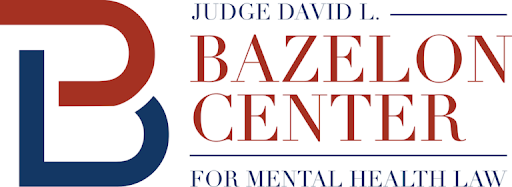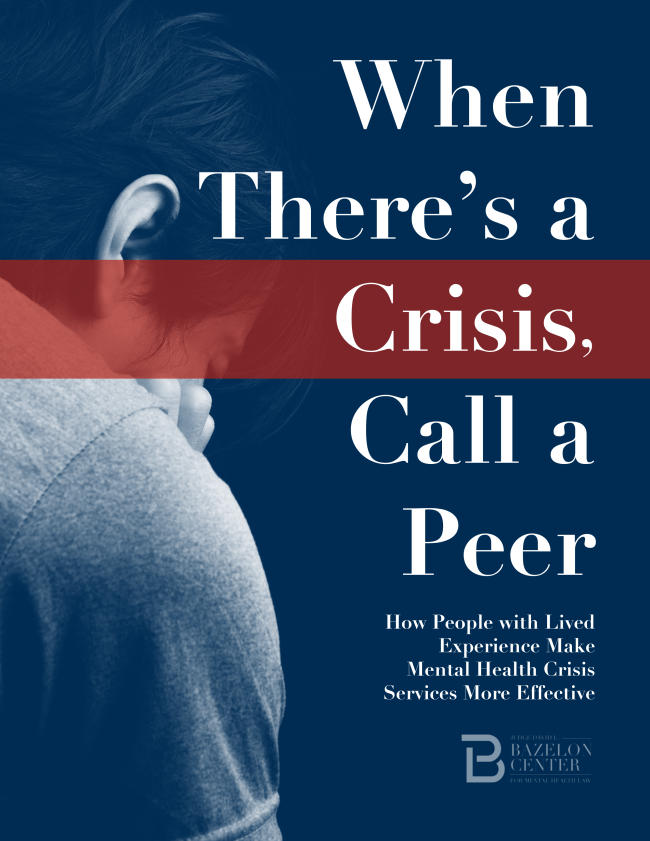 |
| BAZELON ISSUES REPORT ON THE BENEFITS OF PEER SUPPORTS IN CRISIS SERVICES |
 |
| January 9, 2024 — Today the Bazelon Center for Mental Health Law issued a new report, entitled “When There’s a Crisis, Call a Peer: How People with Lived Experience Make Mental Health Crisis Services More Effective.” The report describes how people with lived experience with mental health challenges, mental health services, or other relevant experience working as “peer specialists” make mental health crisis services both more effective and more cost-effective. As the report explains: “When peers support those in crisis, individuals who need help are less likely to be admitted to emergency rooms and hospitals to receive inpatient care. They are more likely to participate in community-based services—which can help them avoid future crises and resulting institutionalization or incarceration—and be more engaged in the services they receive. They experience less self-stigma and more self-empowerment and hope. They are less likely to need crisis services in the future. For these reasons, systems that provide peer support services to people in crisis see significant cost savings: individuals spend less time receiving costly inpatient services and more time receiving community-based services—which are more effective at reducing hospitalization rates and lengths of stay, reducing the frequency and intensity of future crises, reducing criminal system involvement, and promoting participation in community activities.” The report describes a number of promising programs that are providing supports that people with mental health challenges want and need, including those led by people with lived experience and those in which they are significantly involved. These include Call Blackline, a confidential national hotline serving Black, Indigenous, People of Color (BIPOC) and LGBTQI communities; Alaska’s Behavioral Health Aide program, in which specially trained members of Alaska’s rural tribal communities provide de-escalation and stabilization support to others with mental health challenges; and Promise Resource Network’s Retreat @ The Plaza, a peer-run respite home in Charlotte, North Carolina. Other programs featured in the report are based in states and communities across the country, including Massachusetts, Alabama, Oregon, California, New York, and Nebraska. To prepare the report, Bazelon Center staff spoke with a number of people with lived experience who are leaders in the mental health recovery movement, along with other people with mental health disabilities and their advocates. The report highlights their words and views. “This is more than a report. This is about uplifting peer-led programs proven to save and enrich lives, run by and for the communities they serve,” said Jalyn Radziminski, the Bazelon Center’s Director of Engagement, who supervised work on the report. “When someone is in crisis or just in need of support, this country can no longer say that increasing policing, coercion, and hospital beds is the answer. For years, peer communities around the world have supported people effectively while affirming dignity, autonomy, and informed choice. This is a part of the answer to how we support people in crisis, and we need to lean into it.” Read the full report (PDF). Learn more about the Bazelon Center’s advocacy on mental health systems. |
| YOUR SUPPORT IS NEEDED |
| The Bazelon Center relies on contributions from our allies to ensure that our staff can fight for protections and services for people with mental disabilities. Please consider making a gift today. |